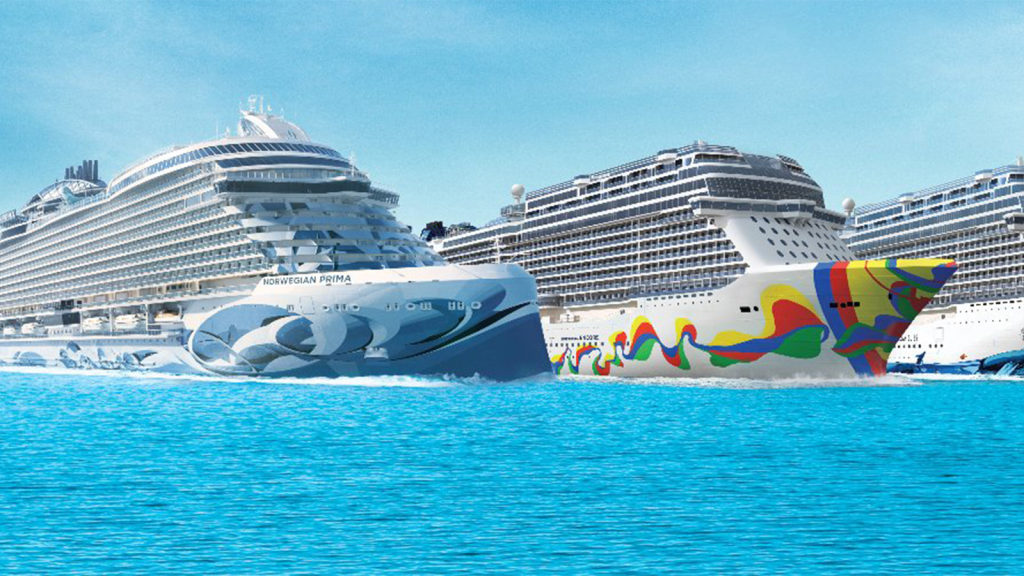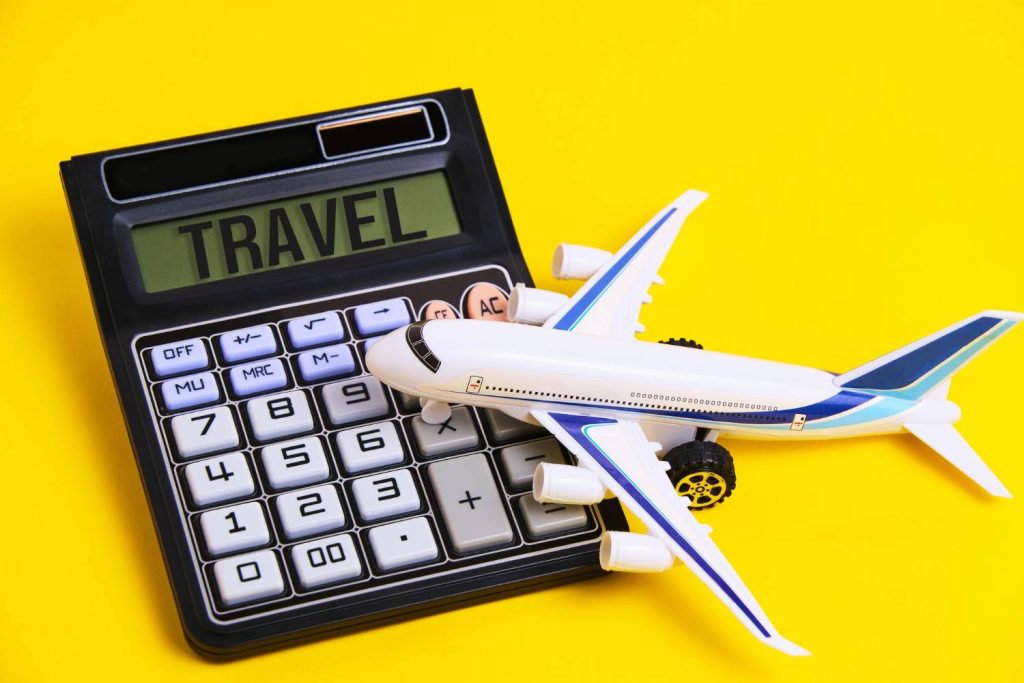Norwegian Cruise Line shares drop sharply following a disappointing earnings report for the first quarter, as the cruise stocks struggle under the weight of changing consumer sentiment. The company revealed that earnings fell short of market expectations, sparking concerns over potential travel budget constraints and an overall cautious approach among American travelers towards long-haul trips to Europe. With revenue for the quarter at $2.13 billion—just below the anticipated $2.15 billion—Norwegian Cruise Line is bracing for continued pressure on its financial outlook. This lack of confidence is echoed in broader booking trends in the cruise industry, raising questions about the future of cruise stock performance amidst economic uncertainty. As indicators of the cruise industry outlook become increasingly mixed, investors are keenly watching how Norwegian navigates these turbulent waters.
The recent decline in shares of Norwegian Cruise Line highlights critical challenges in the cruising sector, signaling broader risks for investors in travel-related stocks. Amid rising costs and shifts in consumer behavior, many potential travelers appear to be reconsidering their plans, particularly concerning trips across the Atlantic. With Norwegian’s earnings results revealing a slight downturn in financial health, industry watchers are scrutinizing the implications for overall cruise line profitability. As economic pressures mount, booking habits are likely to evolve, placing Norwegian and its peers in a precarious position within the market. Understanding these dynamics is essential for those tracking the cruise sector’s recovery and its capacity to attract budget-conscious consumers in the face of shifting travel priorities.
Understanding the Decline of Norwegian Cruise Line Shares
Norwegian Cruise Line shares experienced a notable decline of over 7% following the release of their first-quarter earnings report, which failed to meet Wall Street expectations. Despite revenue totals of $2.13 billion, which was slightly below the anticipated $2.15 billion, the market reacted negatively. Analysts were particularly concerned about the reduction in net yield growth guidance, which was revised downwards to 2% to 3%, indicating potential revenue pressures moving forward. This drop reflects broader concerns within the cruise industry, as companies navigate the complexities of consumer spending behavior amidst economic uncertainty.
The decline in share price is emblematic of a larger trend affecting cruise stocks overall, exacerbated by travel budget concerns among consumers. As Americans show reluctance to book longer trips, especially to popular European destinations, cruise lines like Norwegian face a challenging environment. CEO Harry Sommer highlighted this change in consumer sentiment, suggesting that the initial robustness in bookings weakened as travel hesitance grew. The implications of this decline are significant not just for Norwegian but also for the cruise industry’s outlook on recovery, which is increasingly intertwined with consumer confidence and economic stability.
Impact of Travel Budget Concerns on Cruise Bookings
Current economic conditions have created a newfound wariness among travelers, influencing their spending habits significantly. With rising concerns regarding travel budgets, many Americans are becoming more cautious about committing to longer vacations, particularly international cruises to Europe. This hesitation was reflected in Norwegian Cruise Line’s reports, where bookings shifted dramatically just weeks prior to the earnings call. This trend tends to impact cruise bookings, as travelers often view cruises as luxury experiences that necessitate a more substantial financial commitment, especially during times of economic uncertainty.
As consumers reassess their budgets, the cruise industry must adapt to this shifting landscape. Norwegian Cruise Line and its competitors are exploring innovative strategies to entice travelers back to booking cruises. This includes offering attractive packages that emphasize value for money, appealing to the ‘experience-first’ mentality many peoepl are gravitating towards, even when tightening budgets. By leveraging favorable financing options and flexible booking policies, cruise lines can mitigate some of the impact from budget-conscious travelers, fostering a sense of urgency and desire to experience the unique adventures that cruising offers.
Cruise Industry Outlook Amid Economic Challenges
The current economic landscape presents a mixed outlook for the cruise industry. On one hand, companies such as Royal Caribbean have reported that travelers continue to prioritize unique experiences, suggesting a resilient demand for cruising. However, the trend of Norwegian Cruise Line shares dropping indicates underlying vulnerabilities as companies brace for potential softness in bookings and overall market conditions. Analysts continue to closely monitor these indicators, projecting that the industry must remain agile to adapt to fluctuating consumer behaviors and economic constraints.
Despite these challenges, there are glimmers of optimism in the industry outlook. Many industry experts believe that cruises may retain their allure even in tougher economic times, as they provide an all-inclusive vacation option that offers significant value compared to traditional land-based holidays. This perception is crucial for cruise lines as they move forward, seeking to solidify their value propositions to attract cautious consumers. Through tailored marketing strategies that emphasize both affordability and memorable experiences, the cruise industry can navigate the turbulent waters of economic uncertainty.
Booking Trends in the Cruise Industry
Booking trends within the cruise industry are continually shifting, and recent data indicates that American consumers are leaning towards shorter, closer-to-home trips. This change has resulted in fluctuating demand patterns, especially for longer cruises to international destinations. Norwegian Cruise Line has reported fluctuations in their booking rates, which CEO Harry Sommer attributes to the changing mindset of American travelers. As they reassess their travel priorities and budgets, cruise lines must adapt their offerings to better cater to this emerging preference.
Amidst these booking trends, cruise lines are not entirely without hope. Consumer interest in cruises remains strong, and many companies are adapting their marketing approaches to emphasize convenience, value, and unique experiences. By incorporating data-driven insights, cruise lines can better align their offerings with consumer desires. Engaging promotional campaigns that highlight special deals, unique itineraries, and onboard amenities can reignite interest and drive bookings during this period of uncertainty.
Norwegian Cruise Line Earnings and Market Response
Norwegian Cruise Line has found itself in a precarious position after missing first-quarter earnings expectations. Adjusted earnings per share of 7 cents fell short of the anticipated 9 cents, raising eyebrows among investors and analysts. In addition to revenue figures hovering below projections, the company’s downward revision of yield growth guidance suggests a cautious approach moving forward. As a direct reaction, Norwegian’s shares dropped significantly, illustrating the intense scrutiny cruise stocks currently face in the market.
The market’s immediate response reflects the interconnectedness of earnings performance and investor sentiment within the cruise industry. A disappointing quarterly report can significantly impact stock prices, as seen with Norwegian Cruise Line. Investors are on high alert, keeping a close watch on cruise stock performance as consumer confidence fluctuates. Consequently, Norwegian and its competitors must work diligently to assure stakeholders that they are navigating these economic challenges effectively, including strategies that demonstrate resilience and adaptability in the face of shifting market conditions.
Economic Volatility and Its Effect on Cruise Stocks
The cruise industry has long been a sensitive barometer of consumer confidence, and current economic volatility is revealing significant strains on cruise stocks. With Norwegian Cruise Line shares experiencing notable declines, investors are more wary about the role of external economic factors, including inflation and geopolitical tensions, which may influence travelers’ willingness to book cruises. The combination of these pressures prompts a careful examination of how cruise companies respond to maintain financial stability.
As economic conditions remain unpredictable, cruise lines must proactively manage costs while striving to retain customers. At Norwegian, initiatives aimed at reducing operational costs and streamlining services are necessary to combat the headwinds they face. By fostering a compelling value proposition for consumers, cruise lines can bolster confidence even in economic downturns. This approach not only reinforces consumer trust but also positions companies like Norwegian to bounce back when market conditions improve.
Consumer Confidence in the Cruise Industry
The importance of consumer confidence cannot be overstated when analyzing the cruise industry’s trajectory. Currently, a palpable hesitation exists among travelers, particularly concerning longer international cruises. This decline in confidence has manifested in lower booking rates, significantly impacting cruise stock performance. Companies like Norwegian Cruise Line are feeling the pressure as they contend with these consumer sentiments, which ultimately drive the larger narrative of market success.
To restore consumer confidence, cruise companies must communicate effectively with potential travelers about the value and safety of cruising, especially in a climate where comfort and assurance are paramount. Engaging with customers through marketing campaigns that highlight the distinct advantages of cruising—like comprehensive travel packages—can shift perceptions and encourage bookings. By addressing consumer concerns and building trust, the cruise industry can gradually foster a more robust recovery.
Navigating Future Challenges in the Cruise Market
As the cruise industry braces itself for ongoing challenges, Norwegian and its competitors will need to navigate a complex landscape filled with evolving consumer expectations and external economic factors. With the ongoing decline in Norwegian Cruise Line shares wreaking havoc on market stability, it’s crucial for these companies to innovate and adapt to survive. Strengthening partnerships across travel sectors, enhancing customer experience, and investing in marketing strategies can help build a resilient cruise market even amid uncertainty.
Future success will depend heavily on how well the cruise industry addresses consumer demand for value amid shifting fiscal priorities. Adapting offerings to meet consumer interests while fostering confidence can lead to increased bookings over time. By harnessing data-driven strategies and focusing on key markets, cruise lines can position themselves favorably to withstand threats and capitalize on emerging opportunities that arise as economies stabilize.
Frequently Asked Questions
Why did Norwegian Cruise Line shares drop recently?
Norwegian Cruise Line shares dropped by over 7% following a missed earnings expectation for the first quarter. The revenue reported was $2.13 billion, below the anticipated $2.15 billion, compounded by concerns over the American consumer’s reluctance to book longer trips to Europe, creating an uncertain outlook for cruise stocks.
What factors are affecting Norwegian Cruise Line shares and the cruise industry?
Norwegian Cruise Line shares are impacted by several factors including travel budget concerns and changing booking trends among American consumers. The recent drop in share price reflects a broader issue in the cruise industry, where overall consumer confidence is wavering amidst economic uncertainties, influencing future bookings for cruises.
How do travel budget concerns influence Norwegian Cruise Line earnings?
Travel budget concerns are significantly influencing Norwegian Cruise Line earnings as potential travelers are becoming more cautious about their spending on vacations. This hesitation is evident in the revisions to the company’s revenue guidance and the drop in share prices, indicating that consumers are prioritizing shorter, more affordable trips.
What is the current outlook for the cruise industry, particularly for Norwegian Cruise Line?
The outlook for the cruise industry remains cautiously optimistic, despite the recent drop in Norwegian Cruise Line shares. CEO Harry Sommer suggests that consumers may still prioritize cruise vacations due to their perceived value, even during economic downturns. However, concerns about future bookings and spending habits raise questions about revenue stability in the upcoming quarters.
How are booking trends impacting Norwegian Cruise Line’s revenue forecast?
Booking trends are directly impacting Norwegian Cruise Line’s revenue forecast, with recent data indicating a slowdown in bookings for long-haul cruises, particularly to Europe. This trend has contributed to a lowered revenue guidance for the company, raising concerns about maintaining profitability amidst fluctuating consumer demand.
What did Norwegian Cruise Line’s CEO say about consumer behavior regarding cruises?
Norwegian Cruise Line’s CEO, Harry Sommer, highlighted that despite a weak quarter, consumers continue to seek vacation experiences, including cruises, as a valued opportunity for leisure. He emphasized that even in economic uncertainty, consumers consider travel as an integral part of their lives, which supports the industry’s resilience.
What is the relationship between Norwegian Cruise Line shares and consumer confidence?
The relationship between Norwegian Cruise Line shares and consumer confidence is closely intertwined. A decline in consumer confidence often leads to decreased willingness to book extended travel, reflecting directly on the stock’s performance. The recent drop in shares illustrates the impacts of consumer sentiment on the cruise sector, making it a crucial factor for stakeholders.
What economic factors are influencing cruise stocks like Norwegian Cruise Line?
Economic factors such as inflation, travel budget concerns, and general consumer spending patterns are influencing cruise stocks like Norwegian Cruise Line. These elements create a ripple effect on profitability and earnings expectations, which in turn affects stock prices and investor confidence in the cruise industry.
How did the earnings reports from competitors affect Norwegian Cruise Line shares?
Earnings reports from competitors like Royal Caribbean have painted a complicated picture for Norwegian Cruise Line shares. While Royal Caribbean exceeded expectations and raised its full-year guidance, the overall downturn in cruise stocks, including Norwegian’s 37% drop year to date, reflects the broader market concerns affecting investor sentiment in this sector.
| Key Point | Details |
|---|---|
| Earnings Report | Norwegian Cruise Line Holdings missed first-quarter earnings expectations. |
| Consumer Sentiment | Americans may be hesitant to book longer trips to Europe, affecting bookings. |
| Overall Market Pressure | Cruise stocks are facing pressure despite an optimistic outlook for the industry. |
| Recent Performance | Shares fell over 7% after the earnings report; YTD share drop of 37%. |
| Company Guidance | Revised guidance for net yield growth down to 2%-3%, yet retained EBITDA expectations. |
| Onboard Spending | Stabilized in April, indicating a return to consumer normalcy. |
Summary
Norwegian Cruise Line shares drop concerns regarding the company’s ability to meet earnings expectations and the potential decline in consumer interest in longer trips. As the cruise industry faces overall market pressure, Norwegian’s shares have plummeted by 37% year-to-date, reflecting growing consumer hesitancy and economic uncertainties. Insights from industry leaders suggest that while short-term fluctuations are evident, consumers continue to prioritize vacationing—underscoring a potential resilience in travel as the economy fluctuates. Despite these challenges, Norwegian aims to retain its strategic guidance and capitalize on cost-saving trends in the maritime sector.



